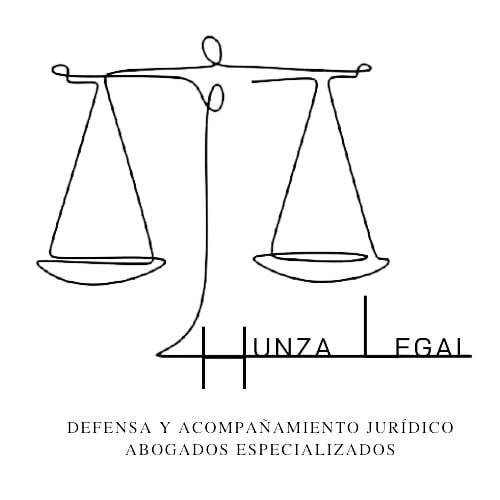Best Arrests & Searches Lawyers in Tunja
Share your needs with us, get contacted by law firms.
Free. Takes 2 min.
List of the best lawyers in Tunja, Colombia
About Arrests & Searches Law in Tunja, Colombia
Arrests and searches are essential aspects of the criminal justice system in Tunja, Colombia. Governed primarily by Colombia’s National Constitution and the Código de Procedimiento Penal (Criminal Procedure Code), these laws exist to balance effective law enforcement with the protection of individual rights. In Tunja, as in the rest of Colombia, authorities must respect due process and fundamental rights whenever detaining persons or searching property. Neither police nor any other authority may violate legal norms or constitutional guarantees, and those subject to an arrest or search are entitled to specific protections.
Why You May Need a Lawyer
There are several situations in which you might need the guidance of a lawyer if you are involved in an arrest or search in Tunja. Common reasons include:
- Being detained or arrested by police or another authority.
- Having your home, vehicle, or belongings searched by law enforcement.
- Believing your rights were violated during an arrest or search.
- Facing criminal charges after an arrest following a search.
- Wishing to file a complaint about police misconduct or abuse of authority.
- Needing help understanding your rights and obligations during a police encounter.
A legal professional can help make sense of your situation, defend your rights in court or during police procedures, and represent you if your case requires legal challenge or defense.
Local Laws Overview
Understanding local law helps clarify what police and civilians can and cannot do in the context of arrests and searches in Tunja:
- Justification for Arrests: Police must have a judicial warrant or catch someone in the act of committing a crime (flagrancia) to detain them legally.
- Search Warrants: A judge's written authorization is generally required for property searches, except in cases where a crime is happening in the moment or urgent situations clearly defined by law.
- Rights of the Detained: All arrested individuals must be informed immediately of the reasons for their detention and of their right to a lawyer. Family members must also be notified.
- Respect for Dignity: Authorities must treat detainees with respect and avoid any abuse or unnecessary use of force.
- Evidence Handling: Any evidence collected during a search must be recorded and handled according to legal chain of custody protocols.
- Illegal Arrest or Search: If your rights are violated or if authorities lack proper legal basis, any resulting evidence may not be valid in court, and you may file a complaint through local oversight bodies.
Frequently Asked Questions
Can police arrest me without a warrant in Tunja?
Police can only arrest without a warrant if you are caught in the act of a crime (flagrancia), if there is an urgent situation that justifies immediate action, or with a proper judicial order.
What should I do if I am arrested?
Stay calm, do not resist, and clearly ask for a lawyer as soon as possible. Do not discuss your case with police until you have legal representation.
Are police allowed to search my home without my permission?
No, except in flagrant cases or where law specifically allows emergency searches. Normally, police need a search warrant signed by a judge.
Do I have to let police search my vehicle?
Police may search your vehicle with your consent, a judicial order, or if they have reasonable suspicion of a crime being committed. Know your right to ask to see any search warrant.
What rights do I have during an arrest?
You have the right to know why you are being detained, have access to a lawyer, remain silent, and have your family informed promptly.
What can I do if I believe my rights were violated during a search or arrest?
Consult a lawyer immediately. You may file a complaint with the Fiscalía or Procuraduría, and such violations may affect how evidence is used against you.
Can minors be arrested and searched?
Yes, but minors have special protections. Procedures must be adapted to their age, and parents or guardians must be promptly notified.
How quickly must I appear before a judge after arrest?
The law requires that you be presented before a judge within thirty-six hours of your detention.
Are there any government bodies that monitor police conduct in Tunja?
Yes. The Procuraduría General de la Nación and the Personería Municipal de Tunja oversee and investigate complaints about police abuse or misconduct.
What happens if evidence is collected in an illegal search?
Evidence obtained unlawfully may be excluded from trial. Your defense lawyer can challenge such evidence to protect your rights.
Additional Resources
If you need more information or wish to report misconduct, the following organizations and authorities can help in Tunja, Colombia:
- Fiscalía General de la Nación (Attorney General’s Office): For criminal complaints and investigation processes.
- Defensoría del Pueblo (Ombudsman): Offers legal guidance and rights protection.
- Personería Municipal de Tunja: Oversees local compliance of public officials, including the police.
- Procuraduría General de la Nación: Supervises authorities and investigates public officials’ misconduct.
- Colombian Bar Associations: Many offer lists of accredited defense attorneys in the area.
Next Steps
If you or someone you know is facing a situation involving arrest or search in Tunja:
- Document everything you remember about the incident, including dates, names, and details.
- Contact a qualified criminal defense lawyer as soon as possible. Many lawyers offer initial consultations to assess your case.
- Do not sign any documents or make formal statements without legal advice.
- If your rights have been violated, consider filing a formal complaint with the appropriate local or national oversight body.
- Stay informed about your case status by regularly communicating with your legal representative.
Facing an arrest or search can be intimidating, but understanding your rights and having proper legal guidance increases your chances of a fair outcome.
Lawzana helps you find the best lawyers and law firms in Tunja through a curated and pre-screened list of qualified legal professionals. Our platform offers rankings and detailed profiles of attorneys and law firms, allowing you to compare based on practice areas, including Arrests & Searches, experience, and client feedback.
Each profile includes a description of the firm's areas of practice, client reviews, team members and partners, year of establishment, spoken languages, office locations, contact information, social media presence, and any published articles or resources. Most firms on our platform speak English and are experienced in both local and international legal matters.
Get a quote from top-rated law firms in Tunja, Colombia — quickly, securely, and without unnecessary hassle.
Disclaimer:
The information provided on this page is for general informational purposes only and does not constitute legal advice. While we strive to ensure the accuracy and relevance of the content, legal information may change over time, and interpretations of the law can vary. You should always consult with a qualified legal professional for advice specific to your situation.
We disclaim all liability for actions taken or not taken based on the content of this page. If you believe any information is incorrect or outdated, please contact us, and we will review and update it where appropriate.










